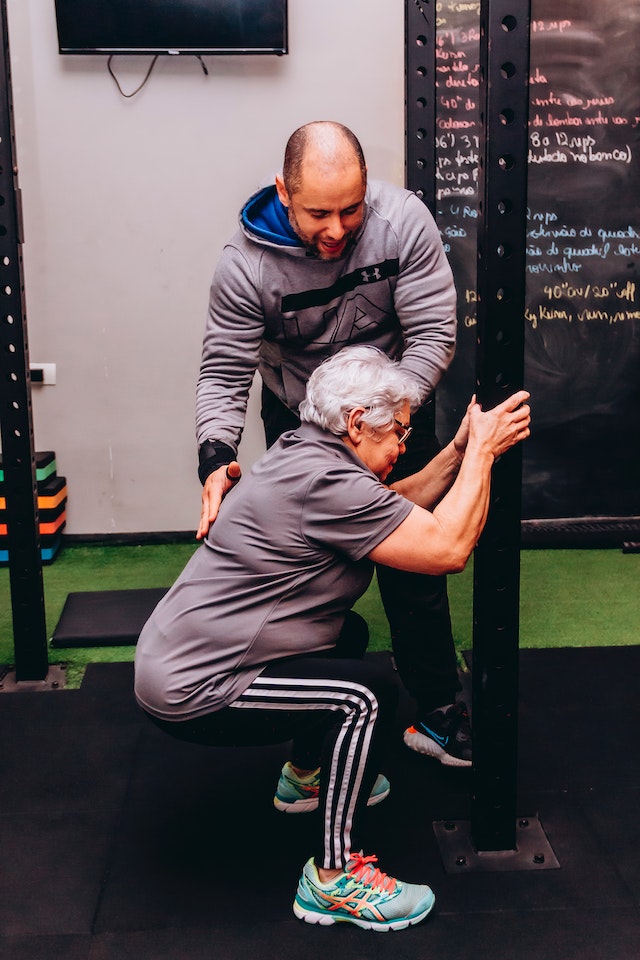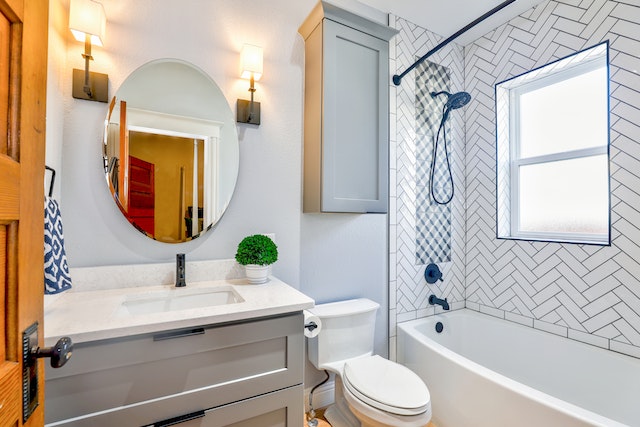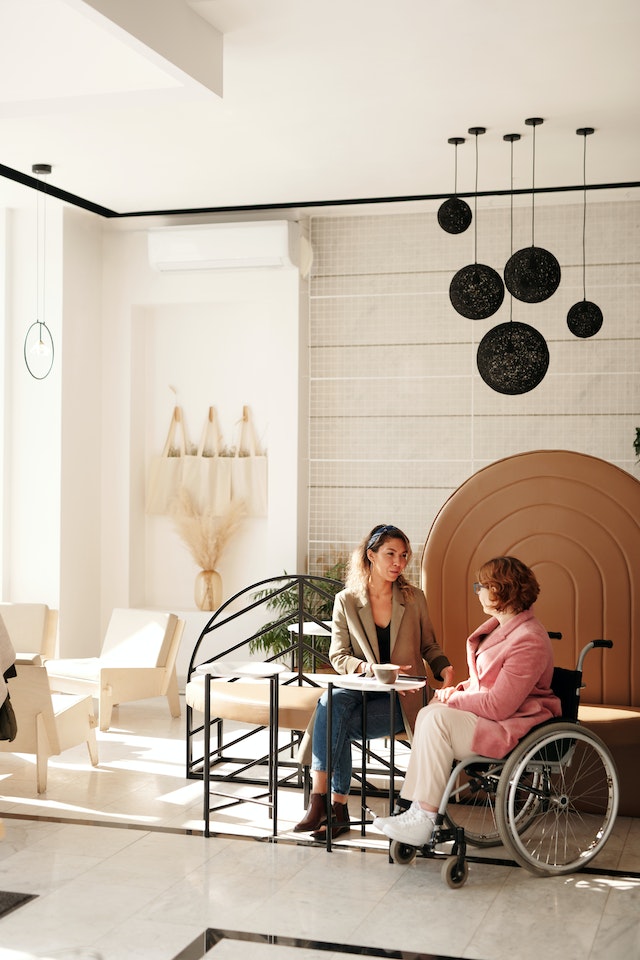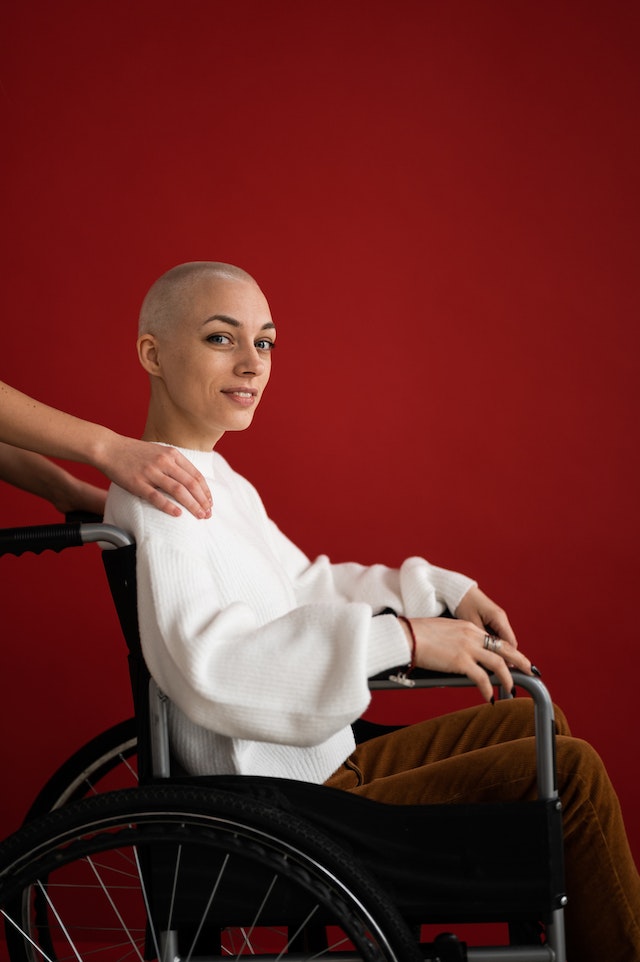Looking after the residents in your care home with limited mobility can pose a unique set of challenges.
Mobility problems may stem from a range of causes, such as a personal injury, a chronic condition, an amputation, or limited mobility that comes with old age. This may lead to unsteadiness while walking, difficulty getting in and out of a chair, or falls.
As with other conditions, helping residents with mobility issues should be part of individualized care, designed to address their disabilities and abilities on an individual basis.
Today we will share seven effective ways to support residents with physical limitations in your care home and increase their comfort.
1. Promote Physical Activity

Encouraging physical activity can help residents improve their flexibility and sense of balance. Even small movements can strengthen bones and muscles and improve steadiness when walking. If a resident with mobility issues has a fear of falling, suggest using mobility aids like canes or a walker.
Sometimes residents may be afraid that they wouldn’t be able to get up from a fall. Therefore, it might be beneficial to practice getting up from a fall with the help of a physical therapist. They may also be able to assist with other appropriate exercises.
2. Find The Right Commode Chairs

Commode chairs are a crucial part of any care home or residential home, where at least one person with limited mobility lives. For many residents, a trip to the bathroom may be impossible and this is where commode chairs can be helpful.
If you require different types of commode chairs, such as bariatric commode chairs, which are typically larger in size and have increased maximum weight, you can consult providers like NHC Group. They are designed to support individuals who are severely overweight to an extent that it impairs their mobility. You will find them in a variety of styles and designs, all of which have durable and robust structures.
3. Implement Safety Modifications

Another crucial step is to assess the mobility situation and think about modifications that can be made to your care home. This means that there might be some useful ways to provide residents with a greater sense of independence. For example, you may want to rearrange furniture to ensure a safer and more direct path.
Be sure to remove clutter from floors to avoid tripping and falling. You can also install additional light fixtures and switch to brighter bulbs. While some modifications may be minor, others might be larger projects.
4. Be Supportive & Flexible

Like other medical conditions, residents will have good days and bad days. With some conditions, their needs may change from day to day, so it’s crucial to be supportive and flexible. Remember to check in with their mental health regularly and get to know their needs and preferences, especially with residents who are newly experiencing limited mobility.
This is because it may take them some time to adjust to their new situation, which may lead to feeling anxious or even angry. Therefore, you should provide them with the support and reassurance they need and look at ways of improving their comfort.
5. Assist With Mobility & Transfers

Avoid jumping in and helping without asking first. Even if a resident cannot move without your assistance, you should still show your respect by asking if they are ready to receive help. For example, if they need assistance while moving, offer your support first.
Whenever you notice that they are having a difficult day, acknowledge it and let them know you are aware of the challenges they are facing and assure them you are there to assist them.
6. Take Time To Learn

It’s important to do your research and learn more about different physical limitations. If you are unsure about something, you shouldn’t be afraid to ask the resident questions. Remember that it’s always better to ask than to do or say something wrong that may offend the resident. You will also need to expand your knowledge of good body mechanics when it comes to moving and handling people.
Additionally, you should learn about the resident beyond their physical limitations by asking about their childhood, their favourite activities or hobbies, or favourite foods. As you get to know the resident better, you will be able to connect with them on a deeper level and provide personalized care.
7. Listen Actively

Lastly, it’s crucial to be respectful when speaking to residents with limited mobility. Remember that a conversation is a two-way street, so you should always use active listening with all your residents. Even a quick chat will be enough to lift their spirits and fulfill their craving for social interaction.
It might be helpful to let them lead the conversation if they wish. However, you should show an interest in what they must share. When you must move on to other tasks, let them know politely, reassuring them that you can continue the chat next time.


